Thinking of getting a paddle board? There are several technical points to consider in order to make an informed decision. Weight, size, expertise, water surfaces, storage, transportation, travel, number of users... It gets complex pretty fast!
Here are our tips for buying a SUP board:
1. Volume
The volume (L) of the board corresponds to the buoyancy capacity of the board.
✓ The higher the volume (e.g. 200 liters and +), the more the board floats.
✓ The lower the volume (e.g. 100 liters and -), the less the board floats.
✓ The greater the weight (lbs) affixed to a board, the greater the volume (L) of the board.
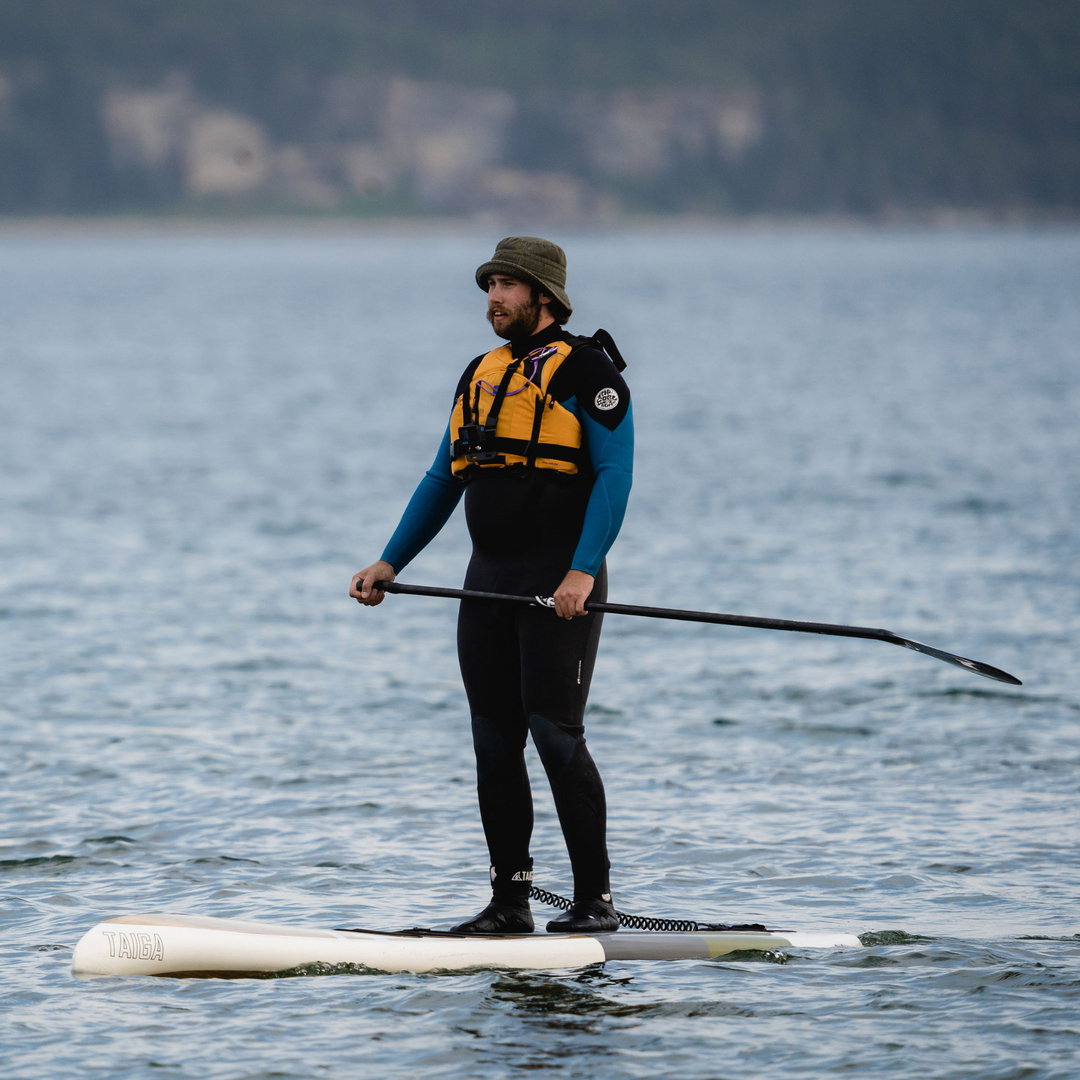
How do I know the right volume for ideal flotation?
The rule is simple; 1 lbs for 1 L.
For example, a 180 lbs man will need a board with a minimum of 180 L.
N.B.: If you plan to bring friends/kids/dogs/luggage or any other extra weight with you on the water, remember to add a few extra liters!
2. Width
✓ The wider the board, the more stable it will be.
✓ A narrower board means speed, but obviously, much less stability!
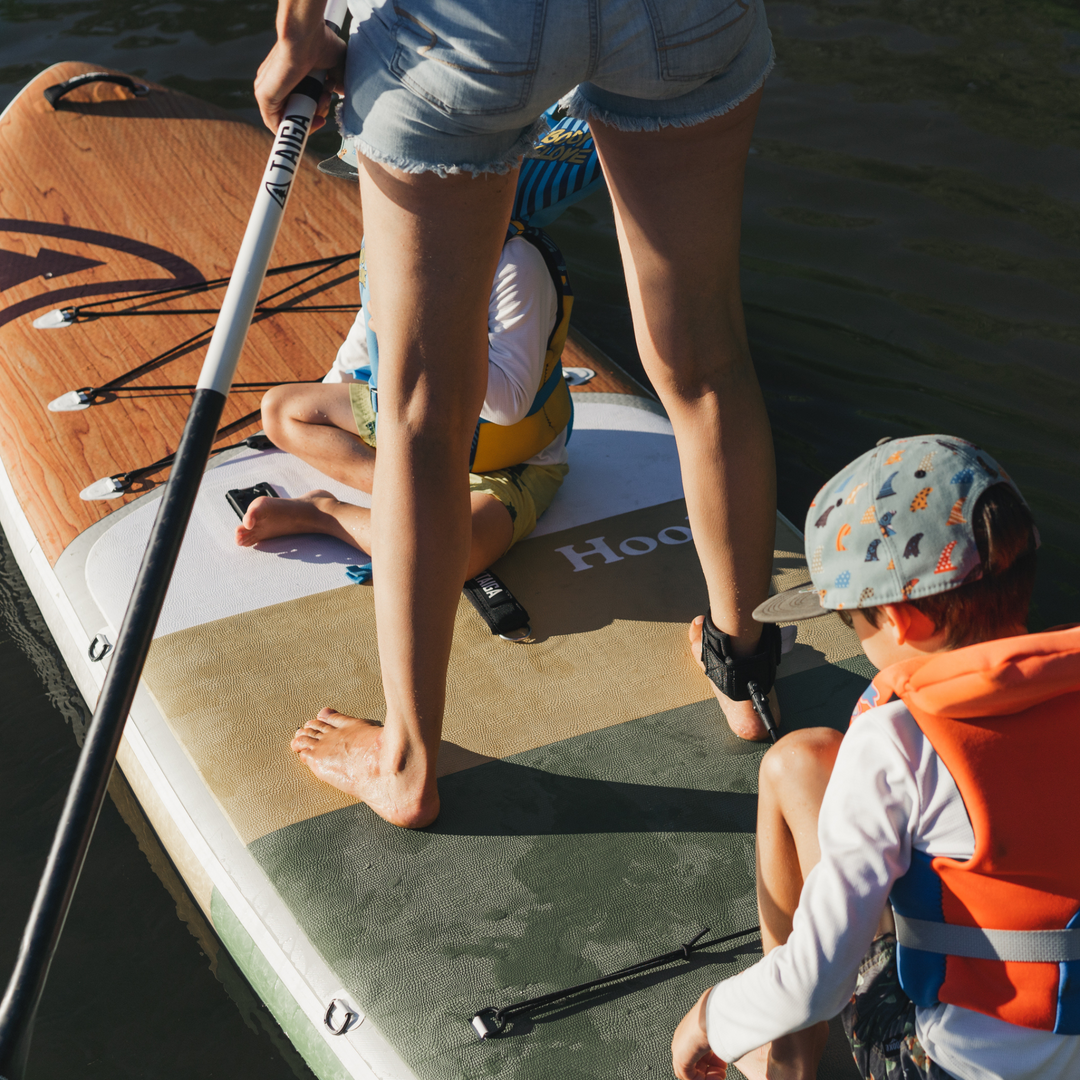
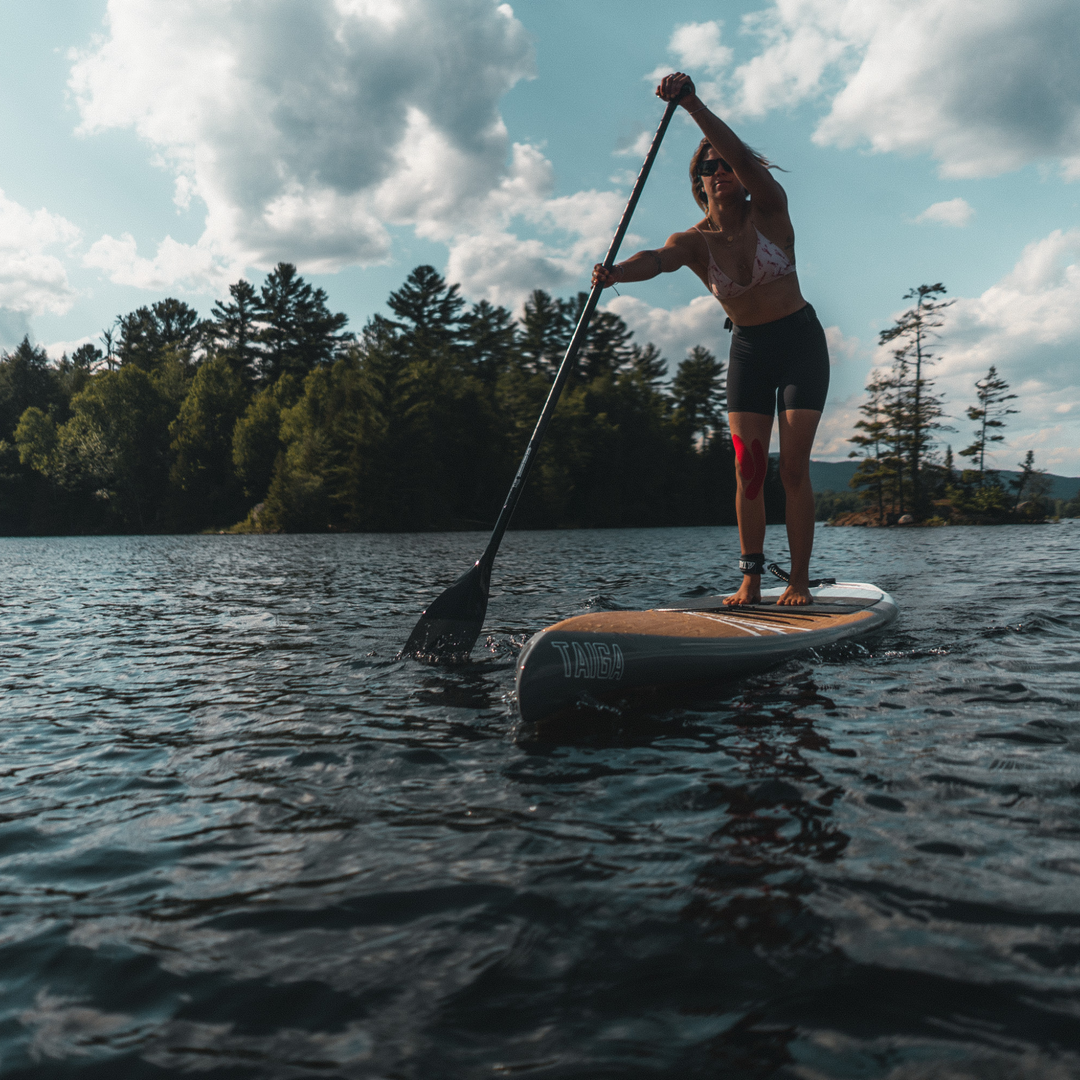
3. Body of Water
The question to ask yourself is: "In what type of water will I use my board the most?".
Use the 80/20 rule; that is, the type of environment in which you will use your board 80% of the time.
✓ Lake: You want to paddle long distances in search of adventure? Your lake is rather large and windy? You need a touring paddle board, like the Kazuzu 12'6. You are more a sunset rider? You need an all-around board.
✓ River: You want to go down rivers? The river level is shallow and there are a lot of rocks? Buying an inflatable paddle board is the best idea. We recommend a specialized board for excellent stability and buoyancy on the water. Our Kanoa 9'6 is specially designed for river rafting.
✓ Sea: You dream of SUP surfing the waves? There are two choices depending on your level of expertise:
1. A shorter paddle board will allow you to take advantage of calmer "cruising" conditions Think about our Eska 9'0, Akoya 9'5 and Hana 9'5.
2. A SUP surf board will allow you to be much more agile on the waves.

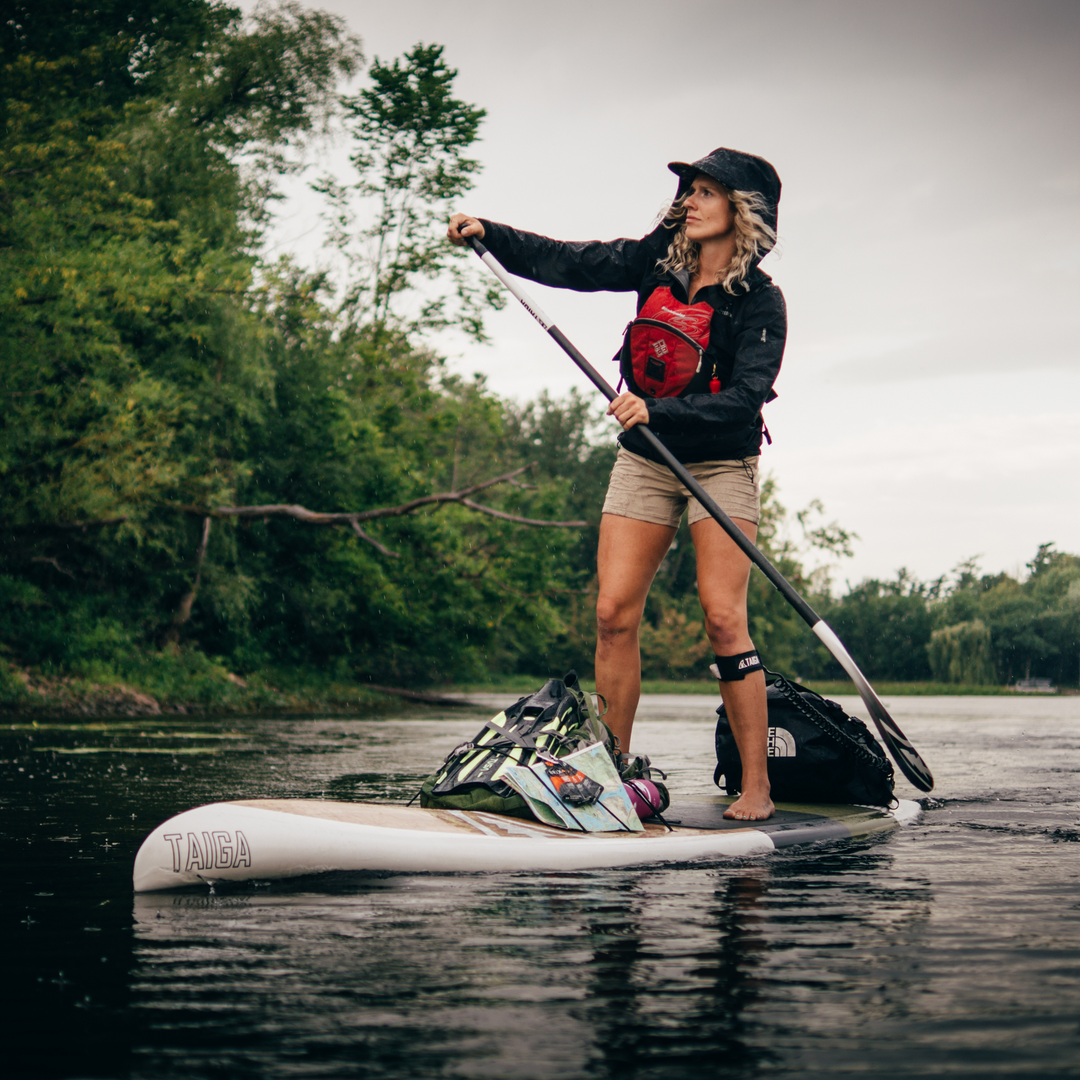
4. Type of board
TAIGA offers different categories of paddle boards that will allow you to maximize your experience on the water.
Here is a brief description of each of these categories:

Shorter and designed for SUP surfing, these paddle boards have a shape that will allow you to be more aggressive in the waves. With their sharper shape and more pronounced rocker, SUP surfs are generally:
- narrower, therefore less stable;
- less voluminous, therefore they are sometimes submerged in calm water;
- easier to handle in waves.
These boards can also be used for young children.
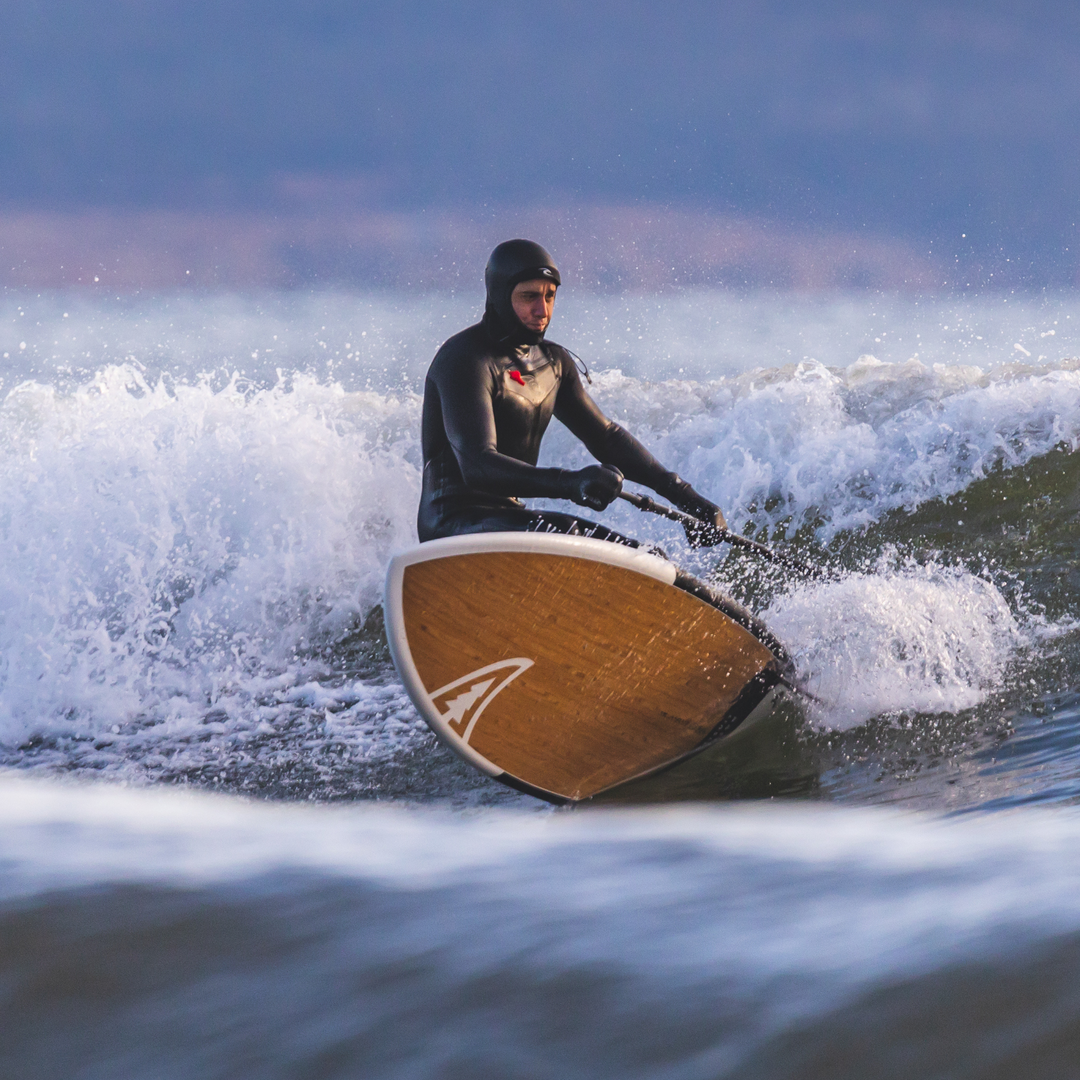

✓ Hybrid: These boards will allow you to paddle on a lake at ease as well as SUP surfing. Let's think about the Eska 9'0, the Akoya 9'5 and the Hana 9'5, excellent boards for smaller people (-150 lbs) as well as teenagers and children.
✓ SUP yoga : Effective in most conditions, this type of paddle board will meet the needs of all users. The variety of sizes available in this category will allow you to make an appropriate choice according to your size. Let's think about the Awen 10'0, the Boréa 10'6 and the Thuya 11'0/11'4.
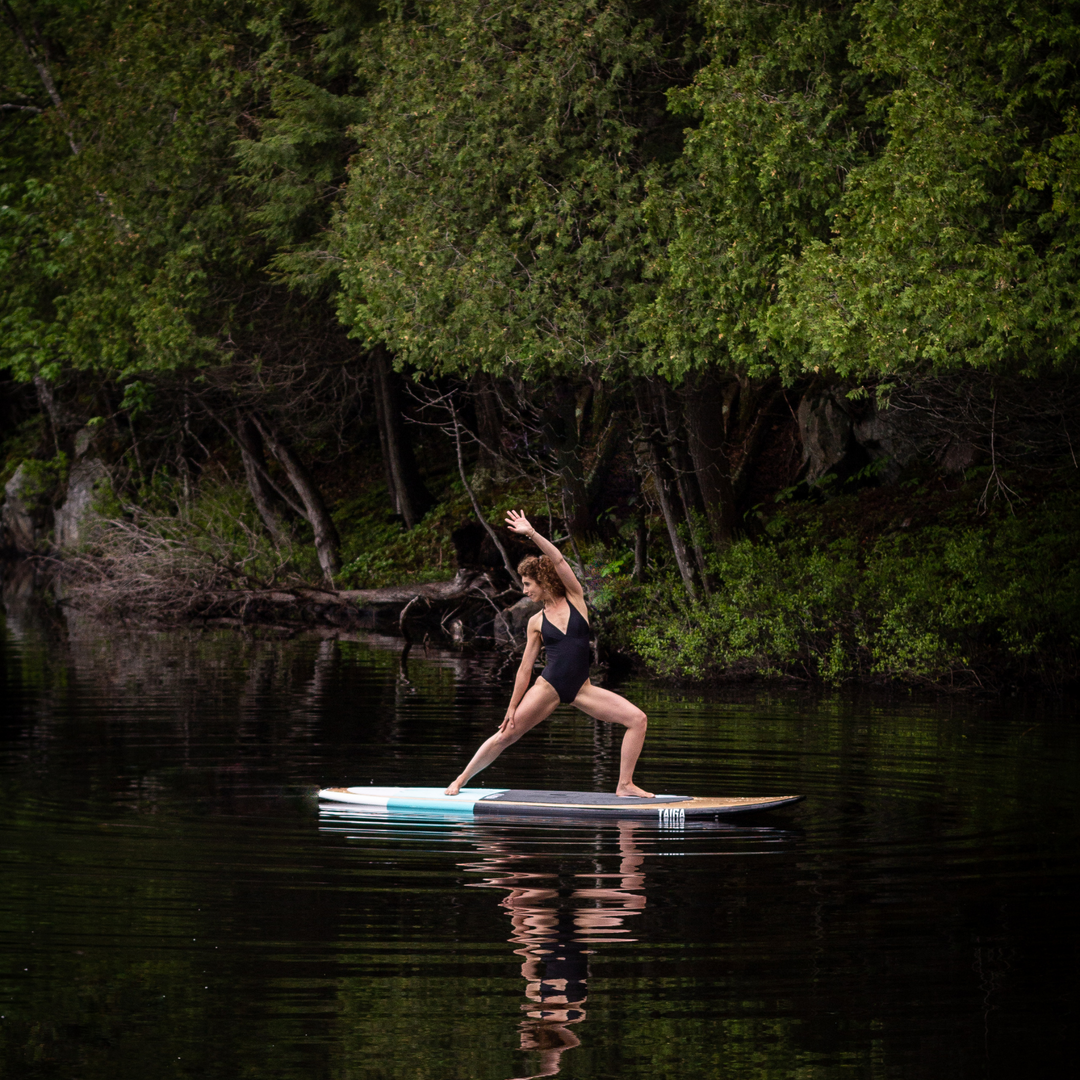
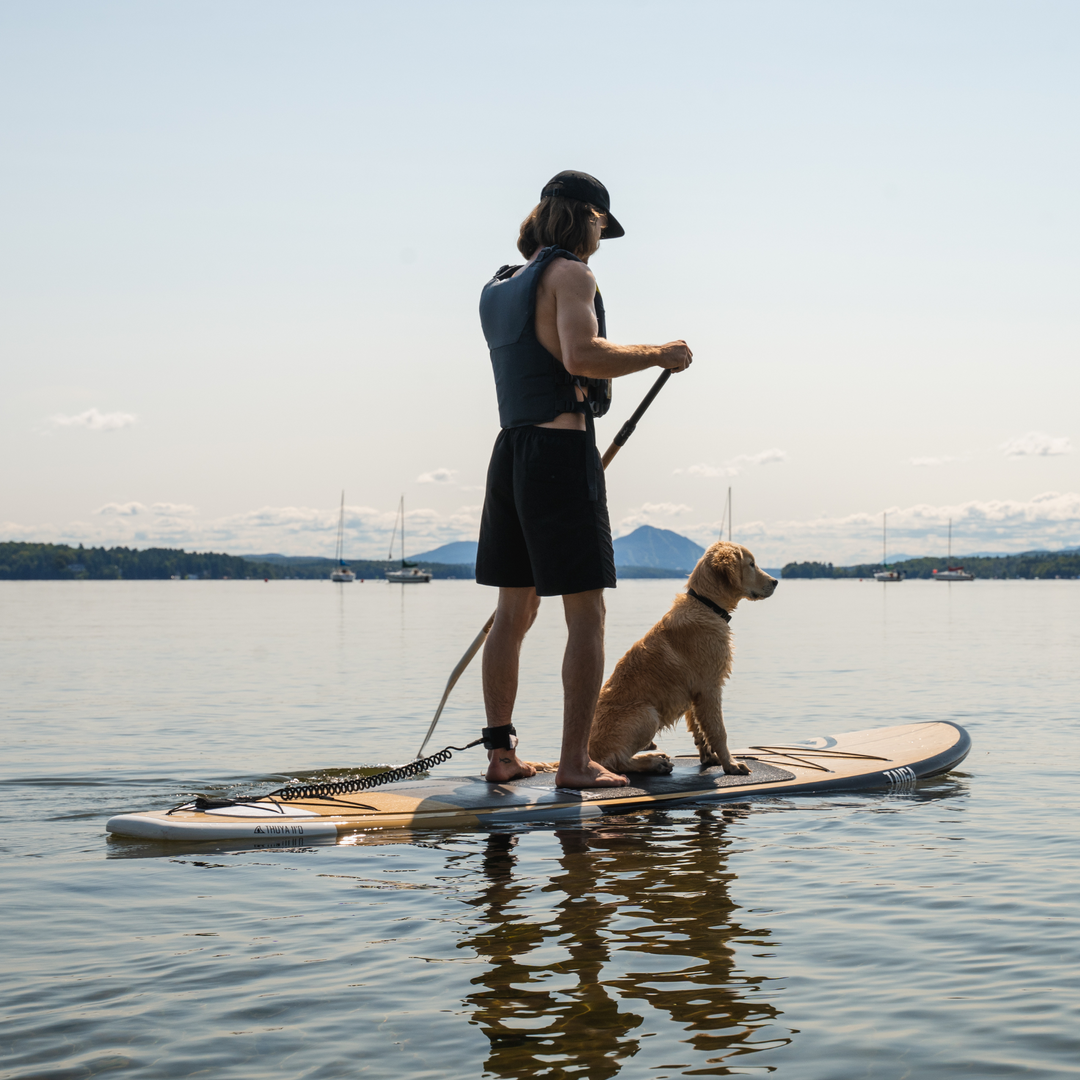
Generally larger and with a more streamlined shape, these boards are perfect for users who want to train, go on expeditions or experience the "feel" of the water, offering speed and stability to the paddler. Touring boards, like the Kazuzu 12'6, are normally less wide and longer, therefore faster on the water.
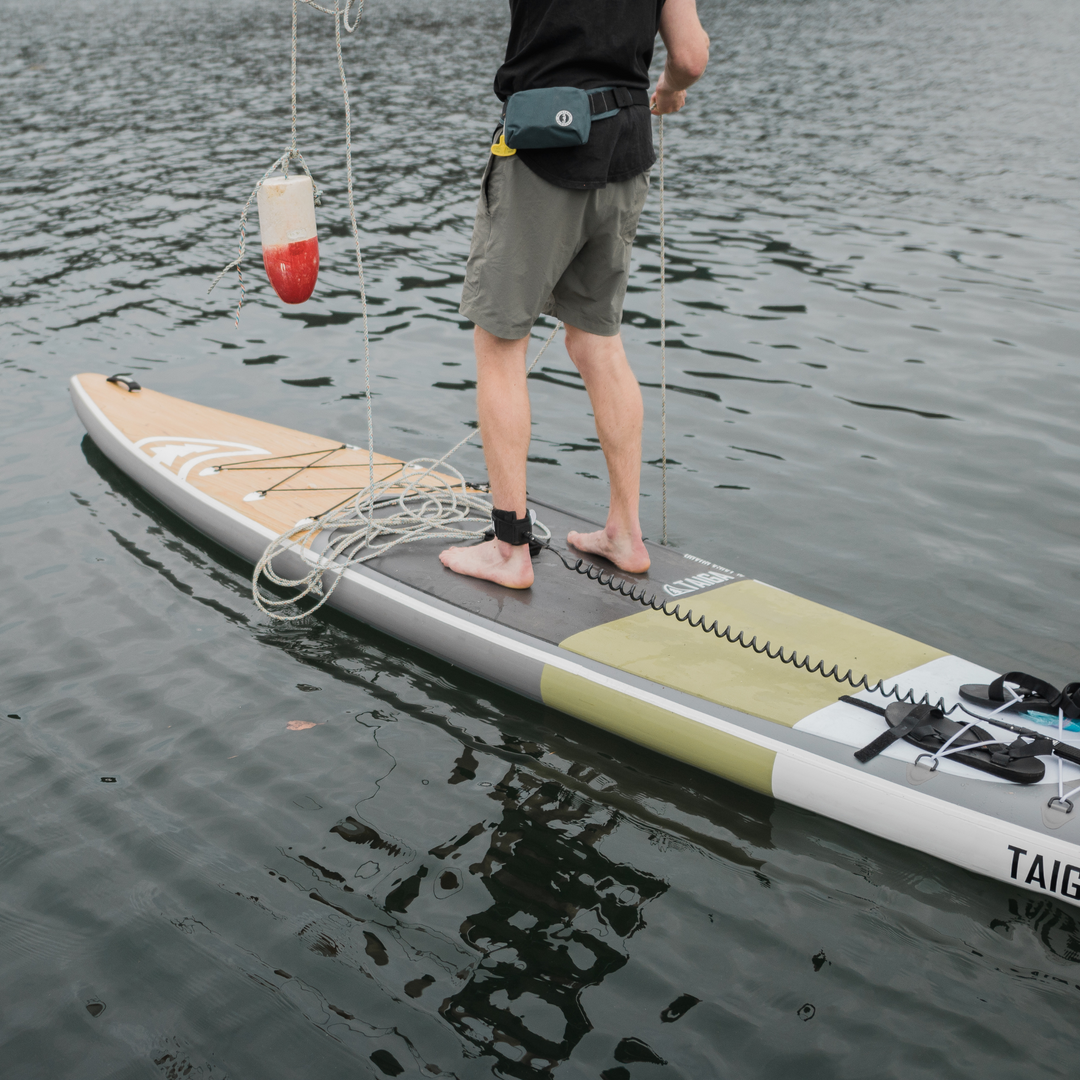
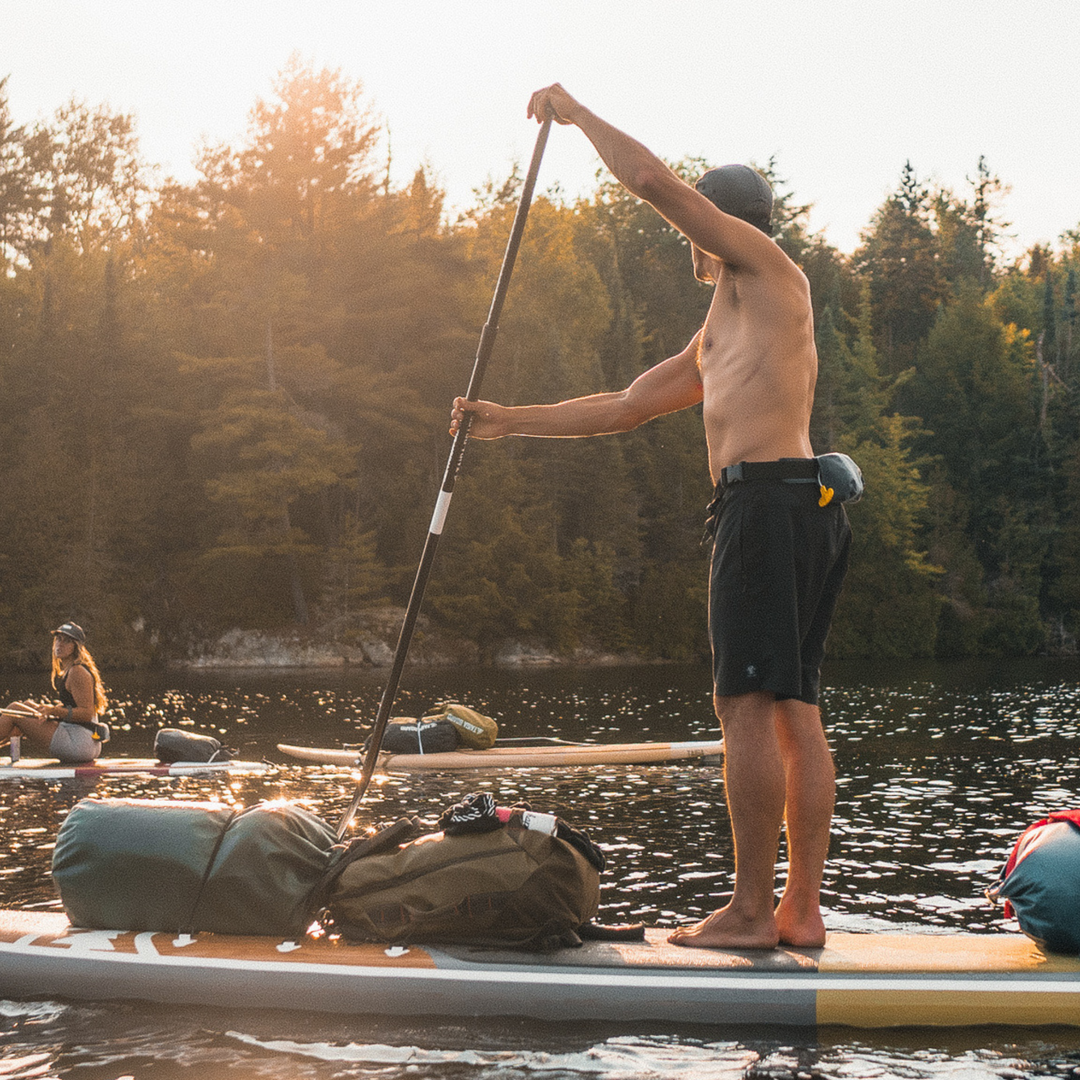
Race boards are faster, but much less stable and harder to handle due to their narrow construction. However, what a pleasure to be able to glide quickly on the water! The Narval 14'0 is perfect for training and racing.
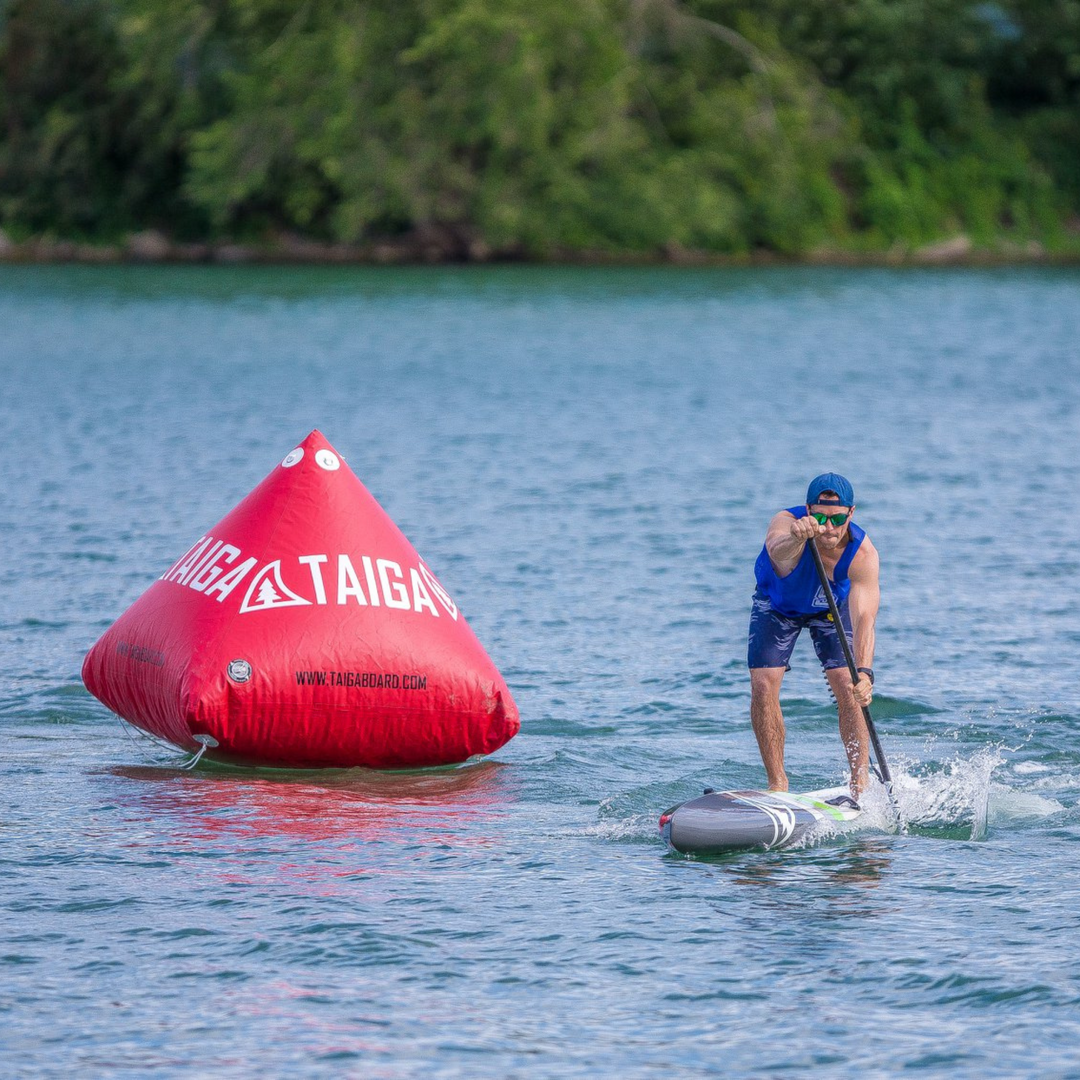
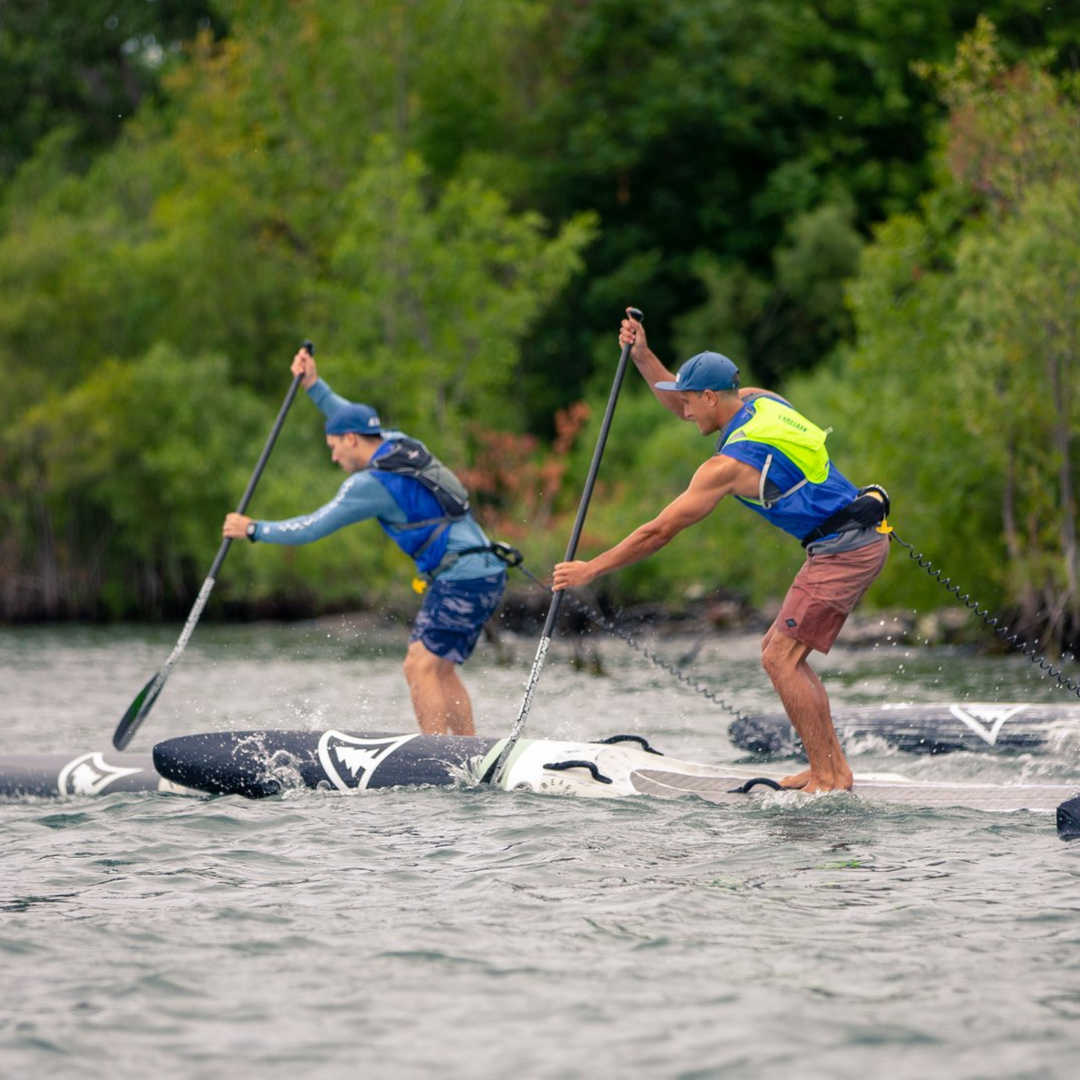
All-Around, Touring or Hybrid: Which SUP to Choose
5. Inflatable or Hard?
✓ Inflatable paddle boards have two main advantages:
- Easy to store;
- Easy to transport.
So if you don't have enough storage space, if you want to travel or if you want a more shock resistant paddle board, an inflatable board is for you!
✓ Hard paddle boards are more stable, faster and more efficient than inflatable paddle boards. If you have enough storage space for a hard paddle board and you want the best feeling on the water, you should definitely consider buying one! However, it is important to know that they are more fragile and require more care.
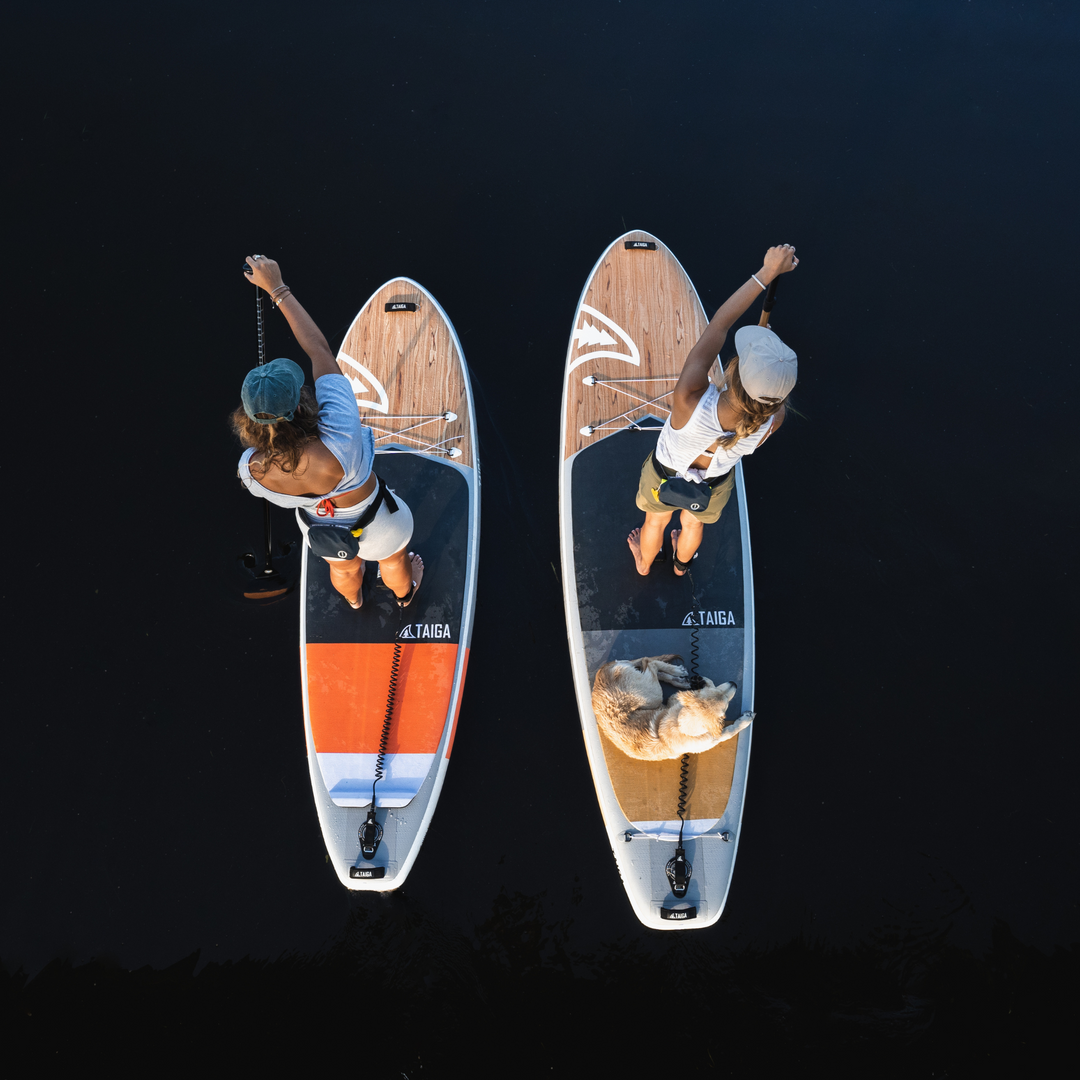
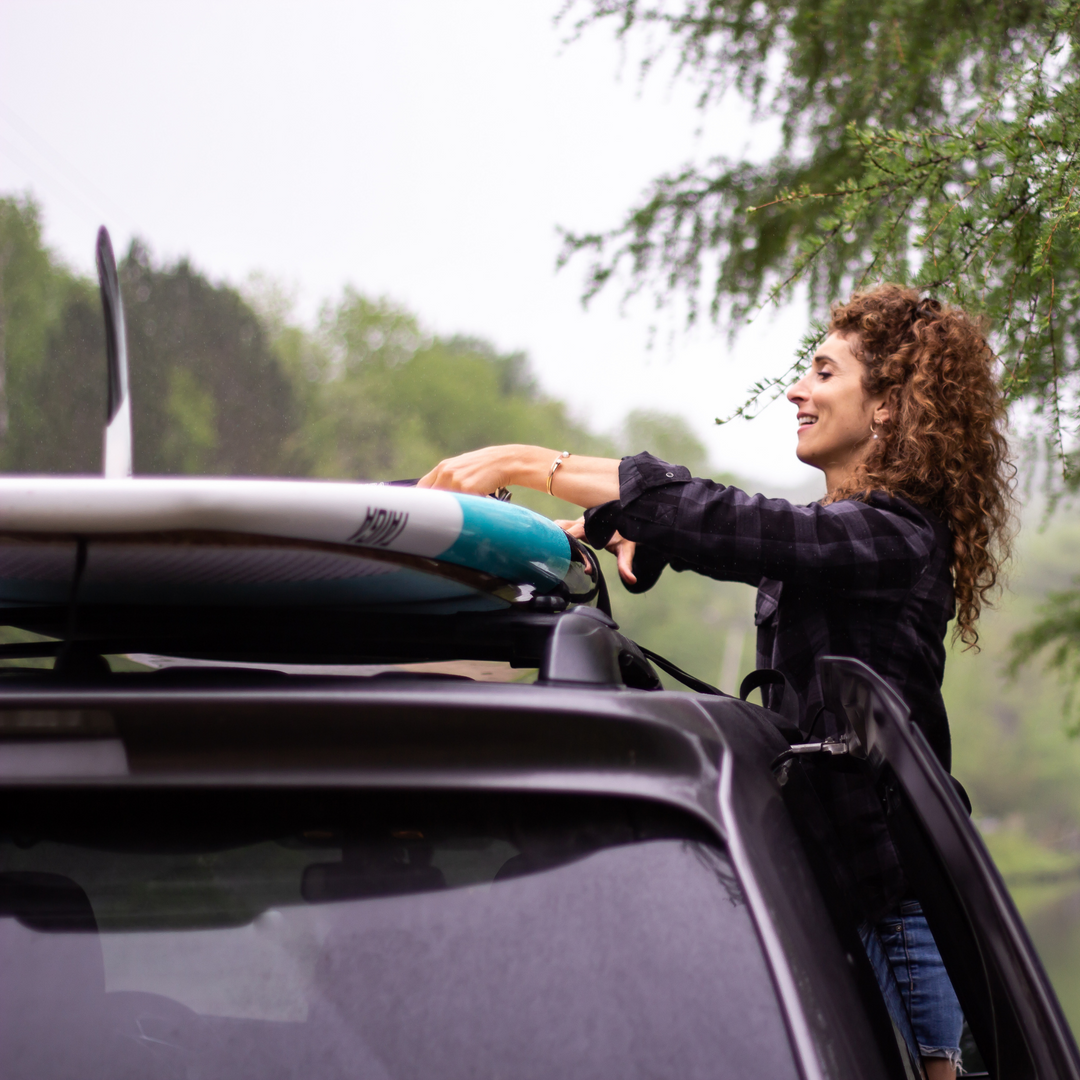
Hard SUP vs. Inflatable SUP: Which One to Choose?
Don't forget to shop for a paddle that meets your needs! It's an essential tool; it's what will get you out on the water!




